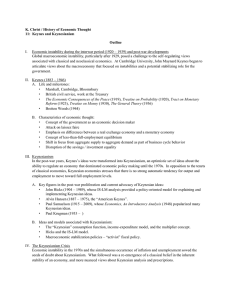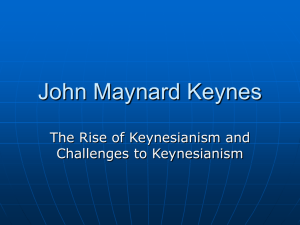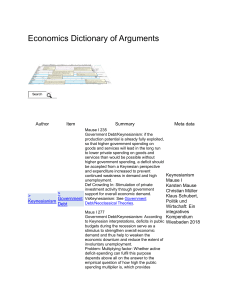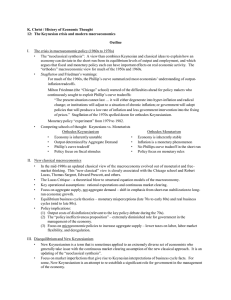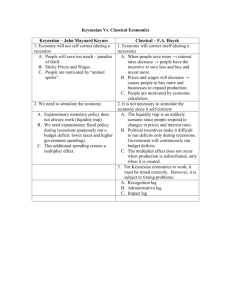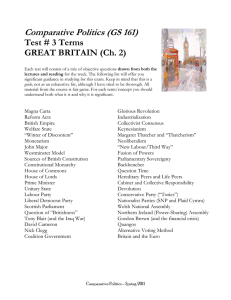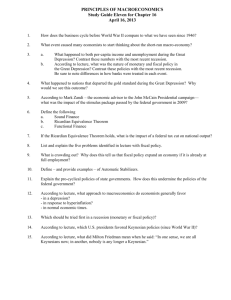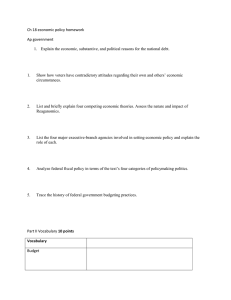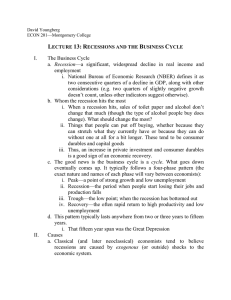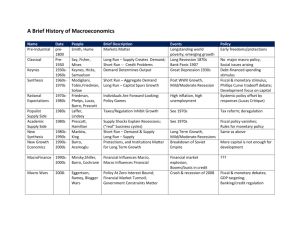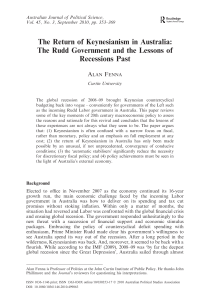Why is Keynesianism Back on the Policy Agenda?
advertisement
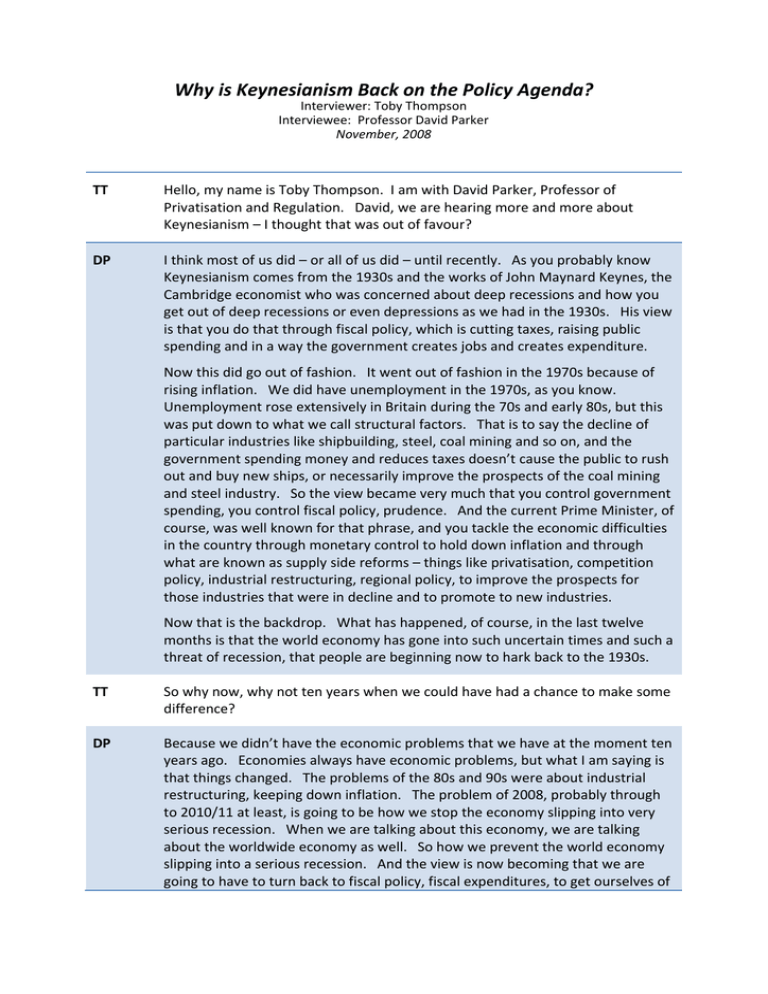
Why is Keynesianism Back on the Policy Agenda? Interviewer: Toby Thompson Interviewee: Professor David Parker November, 2008 TT Hello, my name is Toby Thompson. I am with David Parker, Professor of Privatisation and Regulation. David, we are hearing more and more about Keynesianism – I thought that was out of favour? DP I think most of us did – or all of us did – until recently. As you probably know Keynesianism comes from the 1930s and the works of John Maynard Keynes, the Cambridge economist who was concerned about deep recessions and how you get out of deep recessions or even depressions as we had in the 1930s. His view is that you do that through fiscal policy, which is cutting taxes, raising public spending and in a way the government creates jobs and creates expenditure. Now this did go out of fashion. It went out of fashion in the 1970s because of rising inflation. We did have unemployment in the 1970s, as you know. Unemployment rose extensively in Britain during the 70s and early 80s, but this was put down to what we call structural factors. That is to say the decline of particular industries like shipbuilding, steel, coal mining and so on, and the government spending money and reduces taxes doesn’t cause the public to rush out and buy new ships, or necessarily improve the prospects of the coal mining and steel industry. So the view became very much that you control government spending, you control fiscal policy, prudence. And the current Prime Minister, of course, was well known for that phrase, and you tackle the economic difficulties in the country through monetary control to hold down inflation and through what are known as supply side reforms – things like privatisation, competition policy, industrial restructuring, regional policy, to improve the prospects for those industries that were in decline and to promote to new industries. Now that is the backdrop. What has happened, of course, in the last twelve months is that the world economy has gone into such uncertain times and such a threat of recession, that people are beginning now to hark back to the 1930s. TT So why now, why not ten years when we could have had a chance to make some difference? DP Because we didn’t have the economic problems that we have at the moment ten years ago. Economies always have economic problems, but what I am saying is that things changed. The problems of the 80s and 90s were about industrial restructuring, keeping down inflation. The problem of 2008, probably through to 2010/11 at least, is going to be how we stop the economy slipping into very serious recession. When we are talking about this economy, we are talking about the worldwide economy as well. So how we prevent the world economy slipping into a serious recession. And the view is now becoming that we are going to have to turn back to fiscal policy, fiscal expenditures, to get ourselves of them. TT So in terms of business school teaching, do you see yourselves in a few years time teaching Keynesianism and not Friedmanite thinking? DP Well we have always taught both, but whereas in the past we have tended to say, well Keynesianism is appropriate for deep recessions and we don’t have those today, we now do have them or we do have the prospect of them. So I think the emphasis will change and we will have much more, if you like, current examples of where Keynesianism actually works. The problem for monetarism in a recession is – and you have probably heard this phrase and seen it in the press numerous times in the last few weeks, but it has been in our lectures at Cranfield for years – is that monetary policy is pushing on a piece of string in a recession. That you can’t necessarily get people to spend and borrow. We have seen interest rates come down all over the world, but this doesn’t seem to be having an effect on people’s willingness to go out and develop new businesses, invest, spend money and so on. The hope now is that the Keynesian strategy will. But the interesting thing for me is that the Keynesian policy has never been really seriously tested. It wasn’t in the 1930s because Keynes wrote his general theory in 1936 and in 1939 the outbreak of the War came. So what pulled the world economy out of the mess of the 30s was war and war time expenditure. Now you can say that government expenditure on munitions during the War was a kind of Keynesian policy, but that was really an indirect Keynesian policy. So we have to wait and see whether Keynesianism will really work as well. TT So we can expect more of it from students at business schools? DP We certainly can, yes, absolutely. TT David Parker, thank you very much.
